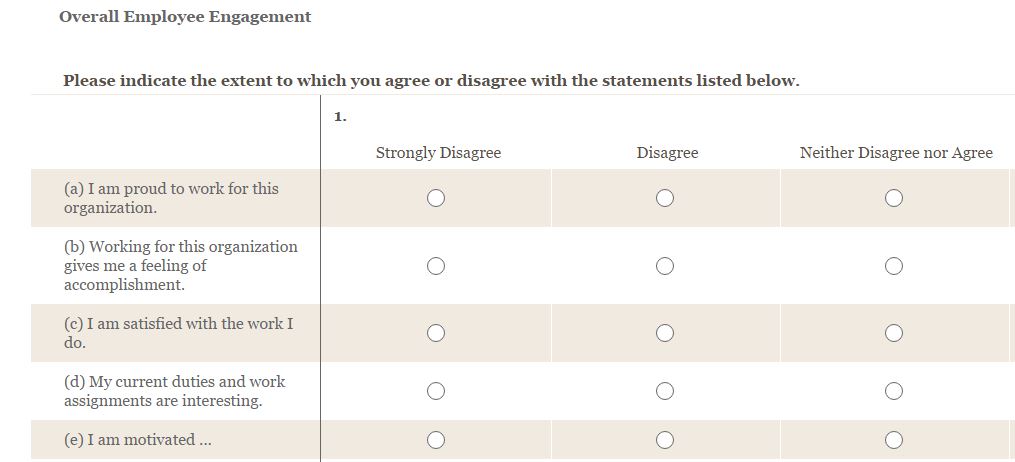You may think you’re a great boss, and maybe you are. You may also think your organization is five-star, and again, maybe it is. But how do your employees feel about working for you and the organization? Do they look forward to coming to work every day? Do they think your company embraces the right values?
According to Deloitte, 79% of CEOs believe they have a significant retention and engagement problem, and 77% of CEOs feel they don’t have the right systems in place to address the issue. Still, Gallop research shows that companies with highly engaged workforces outperform their peers by a staggering 147% in earnings per share. For these reasons, when it comes to gauging morale and measuring employee engagement, “nice-to-have” is the wrong attitude. Unfortunately, there are still many companies out there that describe an employee engagement survey in that way.
Great bosses have their fingers on the pulse of their employees throughout the year, rather than relying solely on annual performance reviews. They understand the importance of keeping their employees engaged; they also know they can’t do it on their own. That’s the reason they turn to employee engagement surveys, and you should too.
Create A Culture Of Engagement With The Right Employee Engagement Survey
The employee engagement metrics that companies use can affect their ability improve performance. Too often organizations make the mistake of crafting employee surveys to collect data that are irrelevant or impossible to execute. When a company asks its employees for their opinions, they expect action to follow. Employee engagement metrics should be specific, relevant, and actionable for each team regardless of organizational level, and proven to affect key performance metrics. Why? Because engagement ties directly to employees’ level of effort—their willingness to go the extra mile for their company.
When designing employee engagement questionnaires, in addition to knowing what not to ask, there are three important elements to keep in mind to help frame engagement survey questions that accomplish your foremost objective–improving employee performance.
Understanding and relating to organizational goals. To succeed in their job, employees need to understand how they fit in the overall organization. The successful implementation of a well-formulated corporate strategy relies on employees’ alignment with corporate goals. Therefore it is imperative that the engagement survey confirms whether employees understand the firm’s goals and the connection to their own roles and responsibilities.
Commitment to co-workers. One of the attributes that separate high-performing employees is that they thrive on learning from and teaching each other. A changing and more global workforce means that all employees must be as comfortable working with a colleague on another continent as they are with the person sitting next to them. Make sure your questions help you determine whether employees are members of a cross-functional, collaborative team that inspires high performance.
Having the right capabilities. In today’s world of constant change and growing uncertainty, businesses are endeavoring to keep their workers positive about the company, and change in general. An employee’s understanding, agility, the network they work in, direction, and their expectations—is the most impactful contributor to high performance during times of significant change and uncertainty. Ensure your questions check whether employees are aware of and skilled enough to make use of the tools, information, and resources that can help them navigate change.
So what are you waiting for? If you’re ready to demonstrate that employee opinions count and employee engagement is a priority, let us help you gain actionable insights. Take a look at our sample employee engagement survey templates to help you implement a systematic approach to measuring and improving employee engagement, and ensuring that you’re fostering a culture of truly engaged employees.







